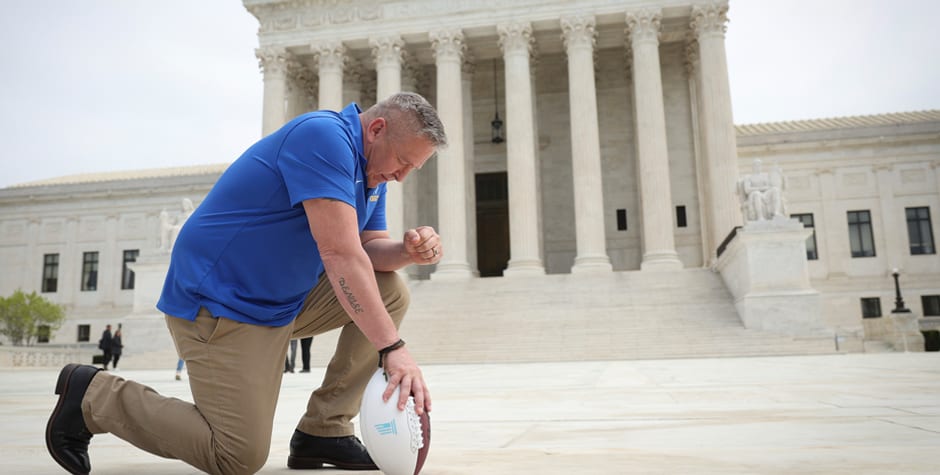The Supreme Court Has an Opportunity To Affirm the Religious Liberty of Our Founding
Our Founders viewed religious freedom as the bedrock upon which all other unalienable rights rested because it requires the government to respect the American people and encourages mutual respect amongst the American people. At the time, this commitment to religious tolerance and true religious liberty was revolutionary. Religious expression was guaranteed for every person in the country. The Constitution reflects this by protecting the American people from the federal government’s attempts to establish a state religion or church.
Unfortunately, today we have drifted far from this original understanding. Years of misguided decisions by our courts, most notably in the 1971 case Lemon v. Kurtzman and the resulting “Lemon Test,” have led to a very different and flawed understanding of religious freedom. Add to this a concerted effort by the intellectual elite to scrub religious faith from the public square, and what we have in America today is a mainstream and political culture that is openly hostile to religious expression.
In recent years, thanks especially to the Trump Administration’s appointments of conservative judges at all levels of our federal court system, the tide has begun to turn back toward our nation’s original understanding of religious freedom. Cases such as American Legion v. American Humanist Association have represented a shift away from the flawed jurisprudence of recent decades. Now, the Supreme Court has a tremendous to keep correcting course with Kennedy v. Bremerton School District.
The facts of the case are simple – a high school football coach, Joe Kennedy, would take time to pray at the 50-yard line following each game, win or lose. The school forbid him from doing so because it worried Kennedy’s prayers could be perceived as the school’s endorsement of religion in violation of the Establishment Clause under Supreme Court case law.
Such reasoning is nonsense – nobody can seriously argue that a quiet, personal prayer after a game is over constitutes religious coercion or the establishment of a state religion. There is a clear difference between religious expression and religious coercion, and reasonable people across America know this.
The school board’s reaction to these events, and its hostility to any form of religious expression, is just one example of a broader problem America has allowed to fester for decades. The conflation of religious expression with government interference with religion must end, and we need to scrap the current warped understanding of the Establishment Clause of the First Amendment.
And where is the outcry among progressives over teachers who indoctrinate their students with Marxist, race-centric ideologies? Critical Race Theory being taught in our children’s classrooms is far more coercive and problematic, but it is openly championed by the same individuals who would repress a football coach’s ability to pray after a game. It’s not about freedom. It’s about power. Establishment Clause cases such as this are not genuinely about protecting the religious freedom of students or spectators – rather they are about the state expanding its own power so that it can dictate when and where Americans are allowed to express their faith. This must not be the future of America.
As Secretary of State, I saw firsthand that America’s work in support of religious freedom is essential across the world. Whether it was officially recognizing the Uyghur genocide in China, freeing Pastor Andrew Brunson in Turkey, or bringing home evangelical Christians held hostage in North Korea, religious freedom was central to our mission in the Trump Administration. But we need to make sure that the liberties we fight for abroad are first protected here at home. That’s why it is so important for the Supreme Court to get their decision in Kennedy v. Bremerton School District right this week.
The ACLJ has been in this fight, filing an amicus brief in support of Kennedy, arguing that we should leave behind the flawed rulings of Lemon and other cases that have set a precedent for restricting religious expression.
America was never meant to be a place where religion is absent from the public square or a nation where faith is treated as a secondary and merely private concern. When you attack religious freedom and attempt to remove religion totally from the public square, you erode the foundation upon which the freedoms we enjoy rest. In order to secure freedom for the American people, we must fight against attempts to do this wherever we can.
